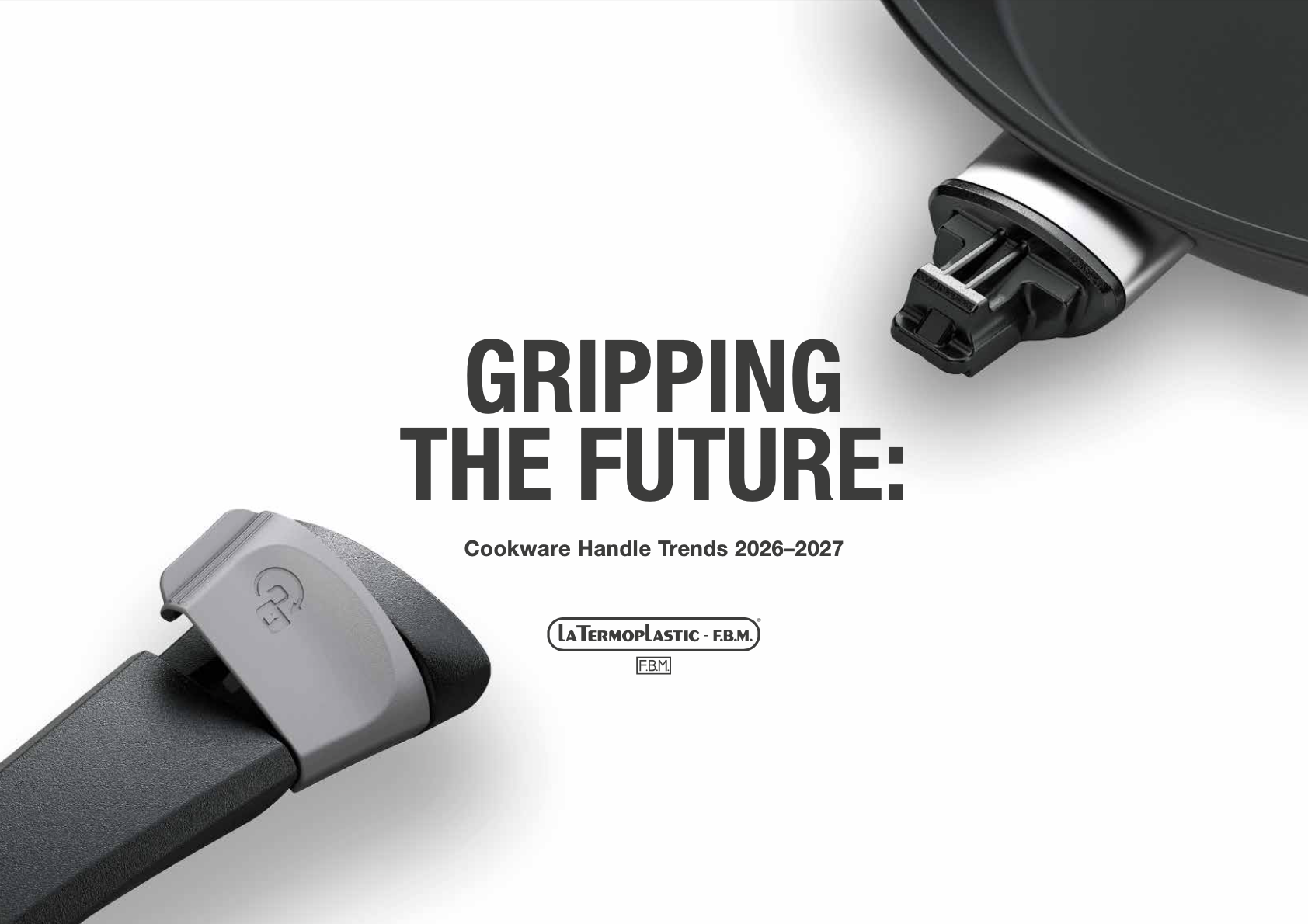The cookware industry is evolving rapidly, and nowhere is that transformation more evident than in the humble handle. Once considered a functional afterthought, the handle has now become a key player in product innovation, lifestyle design, and emotional connection with consumers. As the kitchen transitions into a lifestyle hub, the demand for smarter, more sustainable, and visually expressive cookware is driving a revolution in form and function.
La Termoplastic F.B.M.’s latest trend book, “Gripping the Future: Cookware Handle Trends 2026–2027,” offers a strategic look at the innovations and insights poised to reshape the cookware sector over the next years.
Key 2026–2027 Cookware Trends You Need to Know
 The trend report outlines nine core directions that will influence the next generation of cookware accessories. These trends are not isolated—they’re deeply connected to global cultural shifts, technological evolution, and changing consumer values.
The trend report outlines nine core directions that will influence the next generation of cookware accessories. These trends are not isolated—they’re deeply connected to global cultural shifts, technological evolution, and changing consumer values.
1. Sustainability as Standard
Eco-consciousness as a primary driver of innovation in cookware to meet the needs of sustainability while also offering long-term value and emotional appeal rooted in nature-inspired aesthetics.
2. Space-Saving Design for Modern Living
Smaller homes, hybrid lifestyles, and dynamic daily routines are fueling demand for cookware that saves space without compromising function. 
3. Personalization as a Differentiator
As the kitchen becomes an expression of personal identity, cookware is turning into a lifestyle statement. This shift has major implications for cookware design, where personalization is becoming a strategic branding tool rather than a trend.
4. New Materials for Safety and Performance
 Material innovation is at the heart of the next cookware revolution.
Material innovation is at the heart of the next cookware revolution.
With heightened awareness on topic like PFAS and evolving regulations around chemical compounds, today’s consumers demand safe, durable, and health-conscious solutions.
5. Technological Innovation in Manufacturing
Digital manufacturing is empowering brands to prototype faster, customize more, and scale production without sacrificing quality. In the cookware sector, this translates into shorter lead times, consistent results, and unprecedented creative freedom.
6. Ready for Induction Cooking
The growing popularity of induction cooktops is reshaping the technical demands placed on cookware. Handles must withstand higher, more localized temperatures and resist thermal shock without sacrificing comfort or insulation.
7. Design That Performs—and Looks Good
Function alone no longer sells cookware—form matters just as much. As social media and open-plan kitchens put aesthetics in the spotlight, consumers want cookware that fits their home’s visual language.
8. Agility in a Volatile Market
Today’s geopolitical and economic landscape demands resilience. From raw material shortages to energy fluctuations and disrupted logistics, brands are rethinking how—and where—they produce.
9. Color as a Strategic Tool
Color in cookware is strategic. The 2026–2027 palette reflects a duality of calm and energy, echoing a cultural desire for balance, expression, and renewal. Color tells a story—one that influences consumer perception, enhances shelf impact, and creates strong emotional bonds.
Why These Trends Matter for the Future of Cookware
The cookware industry is no longer driven solely by function or price—it’s now shaped by deeper values: sustainability, customization, design integrity, and emotional connection. From materials to aesthetics, every detail—especially the handle—plays a role in how people cook, feel, and live.
For manufacturers, designers, and brand strategists, understanding these emerging directions is critical to staying competitive in a fast-changing landscape.





